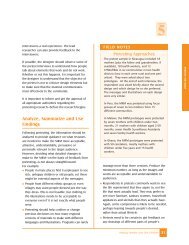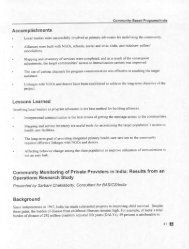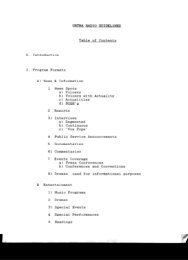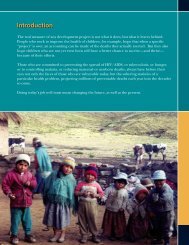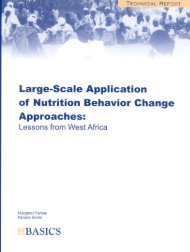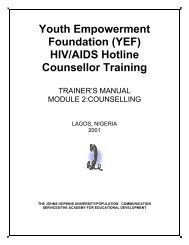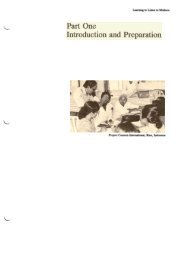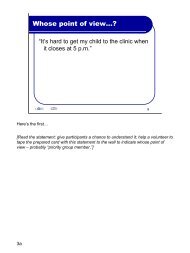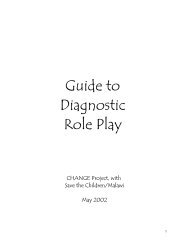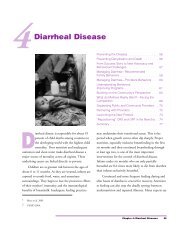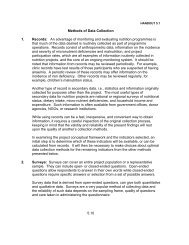MODULE TWO: COUNSELLING - FHI 360 Center for Global Health ...
MODULE TWO: COUNSELLING - FHI 360 Center for Global Health ...
MODULE TWO: COUNSELLING - FHI 360 Center for Global Health ...
You also want an ePaper? Increase the reach of your titles
YUMPU automatically turns print PDFs into web optimized ePapers that Google loves.
Grieving Process of Family and Friends:<br />
•Wake or party to celebrate the person’s life<br />
•Length of mourning period<br />
•Dress during mourning<br />
•Beliefs about life after death<br />
•Wife inheritance<br />
•Property inheritance<br />
•Way that people are spoken of after death<br />
•Shrines or altars in memory of a dead person<br />
THE GRIEVING PROCESS<br />
The grieving process is often complicated because everyone deals with grief<br />
differently. It is not easy to predict how a person will react, and one person may<br />
react differently to two different deaths. Following are some general phases that<br />
a person may go through when grieving. This is not the only model of the<br />
grieving process, but just one way of viewing it.<br />
STAGE 1: Shock and Denial<br />
Immediately after the death, people may experience numbness and a<br />
sense of unreality. They may have a hard time accepting that the death<br />
actually occurred. Denial is a defence mechanism which allows people to<br />
protect themselves and avoid their grief. They may believe that there was<br />
a mistake in identifying the body or that there was some other type of<br />
mix-up.<br />
Denial can be harmful because it isolates the person and keeps him/her<br />
from getting the emotional support that s/he needs. A person cannot<br />
begin to grieve and heal himself until s/he moves out of this stage. A lot<br />
of energy is needed to suppress one’s feelings, so it can be very tiring to<br />
remain in shock and denial.<br />
STAGE 2: Anger<br />
Anger can be a very strong emotion after experiencing a death. A person<br />
may feel angry with the person who died if s/he feels that the death could<br />
have been prevented (i.e. A person who was killed because s/he was<br />
driving while drunk). A person may also feel angry at God or at another<br />
spiritual power if s/he feels that the person was unfairly taken away.<br />
Finally, a person may feel angry with himself or others who played a role<br />
in the death (i.e. A murderer in the case of a carjacking or the driver of a<br />
car who caused an accident).<br />
Session 9 – Pg. 2



